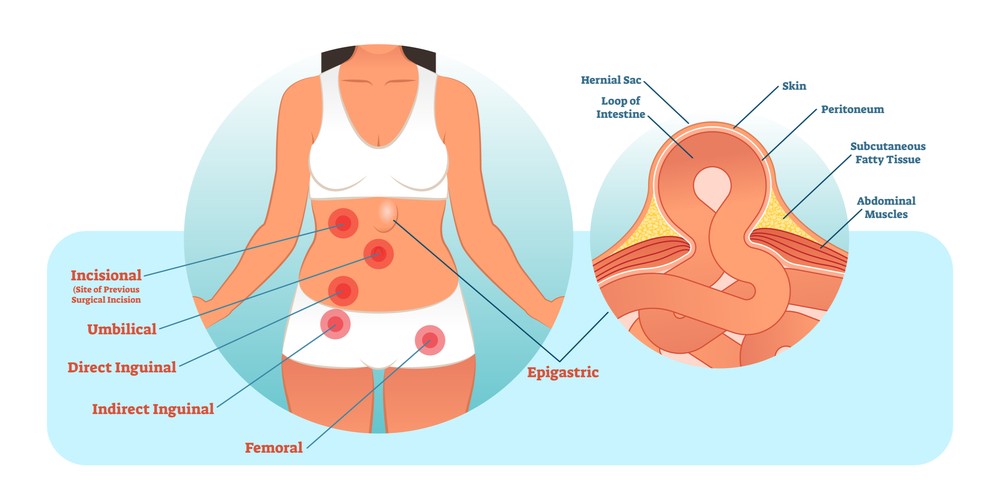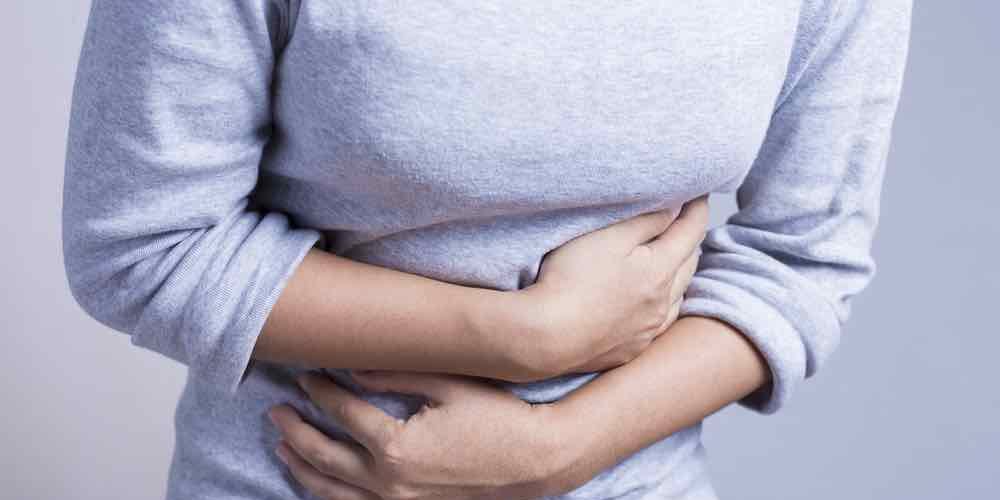
When a person suffers hernia, the organ or tissue protrudes through the weak lining where they reside. There are different types of hernia – inguinal, femoral, umbilical, incision and hiatal hernia. With different types of hernia, the signs and symptoms of hernia also vary. Both men and women can get a hernia and it may be a defect by birth or may be due to lifestyle changes.
Table of Contents
Here are 10 signs of hernia you should not ignore:
Bulging lump
This is the first and most prominent sign of a hernia. It develops due to weak muscles or tissues in the body. The bulge appears when you stand up, cough or sneeze. Immediately consult a doctor when you notice a lump or abnormal growth as it may be some other health concerns such as a cancerous tumor.
Do You Know?: Common Types of Hernia in Men

Pain in the abdomen
There are different levels of pain when you suffer from a hernia ranging from slightly uncomfortable to severely uncomfortable . At times when there is protrusion along with burning sensation. There is pressure on the abdomen if a person with hernia bends or coughs.

Discomfort in other parts of the body
While persisting hernia pain, you may experience discomfort in the nearby areas such as tenderness in the legs, scrotum or labia and irritation in nerves. A hernia may occur as a result of sports injury which may result in nerve compression and the pain can travel to the nearby nerves causing severe discomfort. Therefore, avoid sitting or standing for too long as it may aggravate the symptoms of a hernia.
Also Read: Things To Do and Avoid During Hernia

Vomiting and Nausea
If you experience nausea and vomiting in hernia, it may be an emergency. It happens when the intestine is trapped outside the abdomen which causes vomiting restricting your bowel movement.
Upset stomach
In the case of inguinal and abdominal hernia, digestion is a major sign. Constipation, impaired digestion and ineffective bowel movements can result from the abdominal hernia. There are situations when the intestine slips into the abdomen through the weak abdominal muscle giving bulge.

Reduced blood supply
There is an increasing pressure on blood vessels that restricts the flow of blood to the herniated area. This results in discomfort, tenderness, pain, numbness in the muscles and tissues.
Decreased level of activity
There is pain with movements such as lifting objects, driving for a long time, sitting at a desk all day may pop out hernia. All this puts a lot of pressure on the abdomen.

Feeling of fullness
There is a peculiar feeling in the gut due to hernia. Hernia in the abdomen puts pressure inside the abdomen causing this sensation. There is a feeling of dragging which symbolizes the presence of a hernia.
Also Read: Facts Everybody Should Know About A Hernia
Fever
Fever alone cannot be a symbol of hernia but it usually happens when your body fights against infection. It could be incarcerated hernia, weak abdominal tissue or reduced blood flow. Always get proper diagnosis as fever can be a sign of other body changes too.

Heartburn
In case of hiatal hernia, the food regurgitates into your mouth. This backflow of acid into the esophagus causes heartburn. This can inflame the area resulting in burning sensation.
How severe a hernia can be?
These signs must not be ignored as it can lead to an incarcerated hernia. This is the situation where hernia tissues are trapped and cannot be moved back to its place. It also causes an inability to pass gas or a bowel movement. The severity increases with an incarcerated hernia and needs emergency surgery.
If the incarcerated hernia is left untreated, the blood supply cuts off to the intestine and tissues in the abdomen. This situation can be life-threatening and needs immediate medical attention.
Also Read: What To Expect At the Doctor’s During A Hernia Test?
Laparoscopic surgery to treat hernia
There is a special instrument – laparoscope (telescope-like) that has a camera at the top of it. The surgeon makes 2-3 small incisions and fills the abdomen with carbon dioxide. Through one of the incisions, a laparoscope is inserted that helps the doctor to get a clear view of the internal organs and the defect. The hernia sac is repaired and the incisions are closed using sutures or adhesive glue. A piece of surgical mesh is placed over the hernia defect. (Also Read: Benefits of Laparoscopic Surgery )
- It is a minimally invasive procedure
- Short hospital stay
- Quick recovery
- Post-surgery complications are very less
Get advanced treatment for hernia at Pristyn Care
Get laparoscopic hernia surgery at Pristyn Care for the following reasons:
- Seamless patient care: The patient does not have to manage anything after making an appointment. A patient buddy is dedicatedly assigned to each patient for personalized care.
- Experienced surgeons: Pristyn care has a skilled and experienced team of laparoscopic doctors to treat hernia.
- Free pickup and drop facility
- No cost EMI
- Insurance coverage
- Free follow-ups
Also Read: What to expect under Hernia Surgery?







